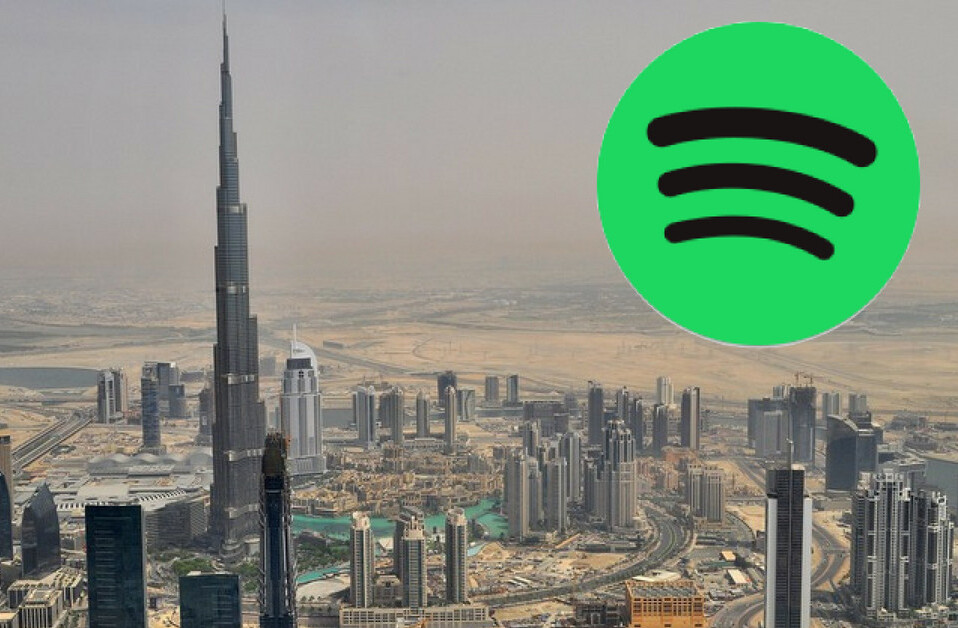
Ask any Egyptian how much of an influence the Internet was in the nation’s uprising, the first thing they’ll probably do is roll their eyes at you. I’ve certainly mentioned it countless times – International media found the perfectly convenient package of the Facebook revolution fueled by a Google executive. A better lede couldn’t have been written if they had made it up themselves.
But the thing is, there is as much fiction in that phrase as there is fact. Yes the Facebook page We Are All Khaled Said, created by the Google executive Wael Ghonim, was instrumental in mobilizing a certain demographic in Egypt. But long after Hosny Mubarak was toppled, figures have emerged to prove that calling the uprising in Egypt in any way, shape or form, a Facebook Revolution, is almost as ridiculous as the short-lived name, the Lotus Revolution, a name which had absolutely nothing to do with the movement.
In case you’re curious, the Lotus Revolution was a name that followed the just as ill-thought out name for the Tunisian uprising, the Jasmine Revolution. Both names were no doubt dreamed up by journalists who had visited the countries once upon a time, and were enamoured with the exotic, oriental, incense-filled alleyways of Cairo and Tunis. The reality of these uprisings couldn’t be further from the Orientalist postcard snapshot that is continually forced down our throats.
The reality of the uprising in Tunisia is that it was sparked by a young man, Mohamed Bouazizi, who lit himself on fire, because that was the only form of protest he had left to use. The reality of the uprising in Egypt is that it was sparked by a young man, Khaled Said, who was brutally beaten to death in an alleyway, while people watched, helpless as he begged for his life.
So with that in mind, it’s no surprise that the Wikileaks parody ad that seemed to be taking a bit of credit for the Egyptian revolution has sparked outrage among Egyptian activists.
Mosa’ab El Shamy, an Egyptian activist and photographer who spent the 18 days of the uprising in Tahrir, told The Next Web, “I thought we would only have to counter all the local corporates here, which were trying to claim credit for the revolution and share a ride on the bandwagon, but Wikileaks, is to me, the worst of them all.”
Many local companies have been accused of playing both sides in Egypt, bowing to the regime before the uprising, and in a lightening quick chameleon change, their colours were suddenly an entirely red, white and black display of supposed patriotism and pride in Egypt’s revolution.
El Shamy goes on to explain his views on Wikileaks conceding, “I believe it’s changing the world in its own way and their effort is a prime and noble one, but it’s ludicrous to hear Mr. Assange in the ad declare with a cheeky grin as he watches the imagery of protesters pushing police forces back from Kasr el Nil Bridge that ‘the world changing as a result of his work is priceless.'”
In fact, as Egyptian blogger Zeinobia pointed out in her response to the parody ad, most of the Wikileaks cables relating to Egypt were never translated or published in local media for a variety of reasons, ranging from a fear of retribution to simply a matter of bad timing, with more important issues taking the attention of the Egyptian media and its audience.
Ironically, much of the information that the Wikileaks cables revealed about the Egyptian authorities was already common knowledge. Egypt is a country that saw bloggers and journalists imprisoned for voicing their opinion. Egypt is a country where questioning the president’s health was punishable with imprisonment. It is not a country which was waiting for Wikileaks cables to spark a movement that was years in the making.
El Shamy points to another ad that saw an even bigger backlash from Egyptian activists, bloggers and tweeters. A Vodafone ad which had originally been released a few weeks before the January 25 protests, was re-released online, with a newly added introduction, in which the telecom company seemed to be attempting to take a bit of the credit for mobilizing the masses.
Comparing the two, El Shamy says of the Wikieaks ad, “I find it more dangerous, and ‘under-attacked.’ Assange is an international, popular figure and millions are ready to follow his steps and take his word; and here lies the danger of ‘brainwashing’ more masses than the ones who believe that it was all his work.”
Wikileaks parody ads aside, no matter how many times the theory is debunked with statistics and personal stories, the Internet revolution keeps rearing its ugly head. El Shamy comments, “It’s always entertaining to see the media to rinse and repeat stories about how tech savvy our revolution was, how Facebooked, YouTubed and Twittereized it is, but I believe it is taken out of context this way, and is an insistence on showing a small, rather unrepresentative aspect of the Egyptian revolution. The huge majority of Egyptians who took to the streets weren’t on Facebook or didn’t mind on missing on the Twitter fad, the impoverished and underfed and ragged clothed certainly weren’t motivated by a Facebook event or some videos they saw on YouTube. That should be acknowledged sooner or later or else I think it’s a huge injustice to them, and an elitist perspective.”

The Egyptian revolution was an incredible coming together of men and women, from different backgrounds, different religions, different cities, and throughout the country, they stood side by side and called for one thing. To even attempt to credit that to the Internet, to Wikileaks, or to anything else other than the perseverance of the Egyptian people is to ignore the facts.
The role that the Internet did play was to get the story out. El Shamy was one of many who tweeted his way through the revolution. Asking him how he personally used the Internet during the 18 day uprising, he says, “I used it to tweet, tweet, tweet and tweet. I reported everything as I saw and answered people’s questions and tried chronicling what it felt to be in Tahrir for over two weeks. I interacted with fellow activists who were away from the square or other parts of Cairo and tried convincing as much people who supported and followed our news through the internet but feared for their safety. It was an amazing experience.”

El Shamy does give credit to the Internet where credit is due. “I think the Internet played a fine role during those 18 days, but did the revolution come to a halt or lose mobilization when the service was cut off the whole country? Definitely not. It was useful that we let the world know, and gradually increase pressure on the regime from outside, and it acted as an anti-propaganda tool when the media was spreading all kind of lies, and I think we made the best of it. But it simply shouldn’t be overstated.”
As Egyptian state TV televised calming images of the Nile, YouTube and Twitter were witness to brutal violence and tear gas-filled shots of a struggle for freedom. As Egyptian state TV broadcast stories of a Tahrir infiltrated by foreign spies from the four corners of the world, hell bent on bringing Egypt to its knees, YouTube and Twitter told of men and women who stood against snipers, thugs, and even a raid of camels and horses, to come out victorious.
When it comes to the actual figures, Facebook penetration in Egypt in April 2011 stands at 7%, with Tunisia’s penetration rate far higher at 22%. And let’s not forget that not all Facebook users in the region were automatically supporters of the uprising. Facebook arguments in the post-January-25 world were common. The number of photos of Hosny Mubarak that appeared as profile pictures on Facebook after the former President stepped down is proof of that. Country-wide protests were not waiting for Facebook members to take to the street.

Yes, activists used Facebook and Twitter to coordinate among themselves, even far before January 25. Yes, Flickr and YouTube were essential in disseminating information to the wider public. But the number of people who took the streets because of a call on Twitter cannot be compared to the number of people who took to the streets because of the on-the-ground efforts of activists who ventured into areas of Cairo, and Egypt as a whole where Twitter was virtually unheard of, and spread awareness. Not in a country where the number of Twitter accounts didn’t exceed 130,000 in April 2011. In fact, the number of people who joined the protests as they watched from their balconies as hundreds and thousands of protesters passed in the streets, chanting “Come down” probably exceeded the Twitter effect as well.
On January 28, I watched minutes before a similar crowd passed beneath my balcony, as a young man quickly passed out fliers to people in the street. He handed the sheets of paper to men standing in the street, threw them at the feet of a crowd of women who were gathered at a street corner, ducked quickly into shops and ran right back out again. I never saw what the flyer said, because by the time I ran down into the street, his fliers were nowhere to be seen, as he disappeared into a crowd of protesters who had fast approached, accompanied by a large crowd of helmeted riot police and police cars, pacing alongside them, peaceful for the moment.
It is men like him who are truly to be credited with mobilizing the Egyptian people. It is men like him who made the Egyptian people take to the streets, knowing there was a possibility they would not be coming home. To say that Facebook can be equated with each and every person’s effort on the ground is to take a little bit of credit away from men like him.
Get the TNW newsletter
Get the most important tech news in your inbox each week.





